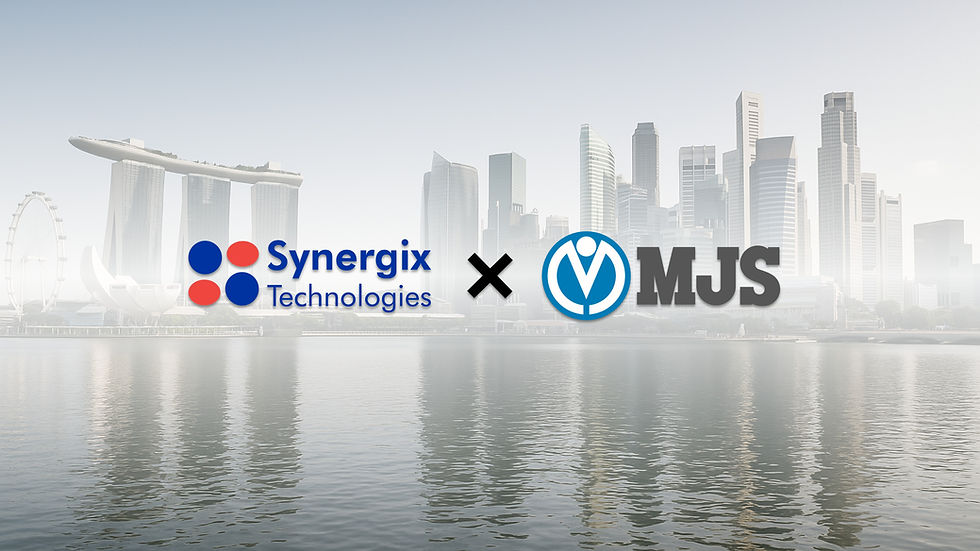Moderna and OpenAI Revolutionize Medicine with AI
- Ryan Seow
- May 6, 2024
- 3 min read
In an era where technology continually reshapes our lives, the collaboration between Moderna, a pioneer in mRNA technology, and OpenAI, a leader in artificial intelligence, stands out. This partnership is setting the stage for a revolution in how we approach medicine, particularly with mRNA therapies, famously used in COVID-19 vaccines.
Since early 2023, Moderna has been integrating AI across its operations, marking a significant shift towards a more tech-driven approach in the pharmaceutical industry. The implementation of OpenAI's ChatGPT Enterprise has allowed Moderna to enhance various business functions, from research and development to legal and manufacturing, offering tailored support to employees and enhancing productivity.
mChat
One of the early successes of this integration is the adoption of mChat, an internal AI chatbot built on OpenAI’s API. Quickly embraced by over 80% of Moderna's workforce, mChat laid the groundwork for widespread acceptance of the more advanced ChatGPT Enterprise platform.
As Moderna embraced AI, the company reached a pivotal decision point with the launch of ChatGPT Enterprise. Initially, Moderna developed mChat, an internal AI chatbot built on OpenAI’s API. This tool quickly gained traction, with over 80% of employees adopting it, setting a robust foundation for more advanced AI integrations. Brad Miller, Moderna's Chief Information Officer, emphasized the importance of this foundation, noting that while many companies aspire to integrate Generative AI, success often eludes them due to inadequate preparation in transforming their workforce to embrace new technologies.
Building on this success, Moderna faced a choice: continue developing mChat or transition to the broader capabilities of ChatGPT Enterprise. After extensive user testing of mChat alongside other tools like Copilot, the decision became clear. “The net promoter score of ChatGPT Enterprise was through the roof. This was by far the company-favorite solution, and the one we decided to double down on,” said Brice Challamel, Head of AI Products and Platforms at Moderna. This decision unlocked new potential, enabling employees to create their own AI tools (GPTs), which led to an explosion of creativity and innovation. Challamel captured the essence of this transformation by stating, “We were never here to fill a bucket, but to light a fire.” This metaphorical fire spread quickly, igniting hundreds of use cases that delivered significant value across the organization, signaling a revolutionary shift in how Moderna operates.
Transformative Effects on Business Processes
The introduction of ChatGPT Enterprise has been transformative. Within just two months of its deployment, Moderna employees created 750 GPTs—custom AI models—to assist with diverse tasks, showing the versatile application of AI in biopharmaceuticals. These AI tools help automate routine tasks, analyze complex data, and drive innovations at an unprecedented scale. Each employee, on average, interacts with ChatGPT Enterprise around 120 times per week, highlighting the tool's integration into daily activities.
A standout application of AI in Moderna’s operations is the Dose ID GPT, an AI assistant that aids in analyzing clinical trial data to determine optimal vaccine doses. This tool not only automates data analysis but also generates detailed visualizations and provides a rationale for dose selection, effectively augmenting the clinical team's decision-making process.
The legal department at Moderna has also seen a complete adoption of AI tools, enabling staff to concentrate on impactful tasks by automating the review and summary of contracts. Similarly, the corporate brand team uses AI to prepare communication materials, ensuring that complex biotech jargon is translated into language that is accessible to investors and the general public.
Future Prospects
Looking forward, Moderna's collaboration with OpenAI is poised to further revolutionize the field of mRNA medicine. With plans to introduce up to 15 new products in the next five years, ranging from vaccines to individualized cancer treatments, Moderna is leveraging AI not just to enhance its operational efficiency but also to expand its capacity for innovation.
As AI continues to permeate various facets of Moderna’s operations, the potential for these technologies to improve patient outcomes and streamline drug development is immense. This partnership reflects a broader trend in healthcare, where digital transformation is becoming crucial to addressing complex challenges and advancing human health.
By leveraging the power of AI, Moderna is not only redefining its internal processes but also setting a new standard in the pharmaceutical industry, demonstrating that a small team empowered with technology can achieve what once required a workforce of thousands. In doing so, Moderna and OpenAI are not just changing the landscape of biotechnology; they are shaping the future of medicine.






Comments